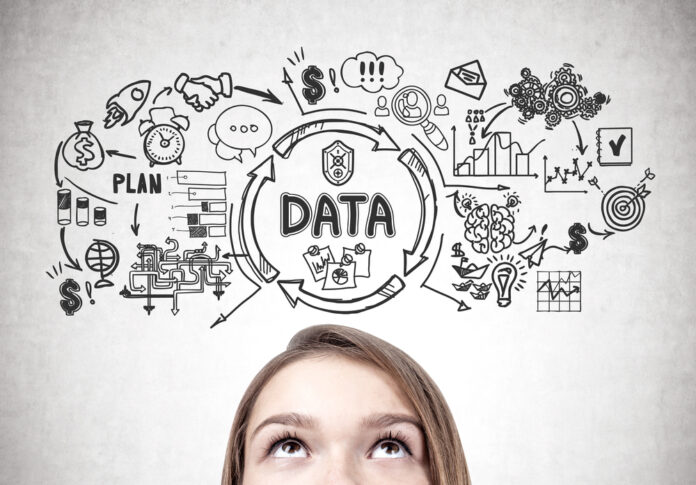In the digital age, the integration of big data and machine learning in education is revolutionizing how we approach teaching and learning. These advanced analytics tools offer unprecedented opportunities to enhance personalized learning, improve student engagement, and optimize curriculum design. By harnessing the power of big data, educators can make data-driven decisions that refine teaching methods and assess student progress more effectively. This article explores how big data and machine learning are transforming education, from personalized learning experiences to innovative assessment methods. We will also address the challenges and ethical consid
electrapk.com invites you to delve into this topic thoroughly.
1. Introduction to Big Data and Machine Learning in Education
Big data and machine learning are transforming education, providing powerful tools to improve teaching and learning. Big data encompasses the massive amount of information generated by educational activities, including student performance, online interactions, and engagement patterns. Analyzing this data reveals valuable insights into individual learning styles and institutional effectiveness. Machine learning, a branch of artificial intelligence, employs algorithms to process and interpret this data, identifying patterns and making predictions that drive improvements in education.
Educational technology empowers personalized learning by tailoring content and instruction to individual student needs. It also provides educators with insights into trends and challenges, leading to more informed decision-making. For example, machine learning algorithms can analyze student data to identify at-risk individuals and recommend tailored interventions. By harnessing big data and machine learning, educational institutions can enhance curriculum design, improve student outcomes, and create a more engaging and effective learning environment. As these technologies continue to evolve, their impact on education will likely grow, driving the development of innovative teaching and learning approaches.

2. Enhancing Personalized Learning
Big data and machine learning are essential tools in enhancing personalized learning. By analyzing vast datasets, including student performance, learning styles, and engagement levels, machine learning algorithms can pinpoint unique patterns and preferences for each learner. This enables the creation of customized learning paths that adapt dynamically to a student’s progress and challenges, providing a truly tailored educational experience.
Adaptive learning platforms leverage these insights to tailor the learning experience for each student. They adjust the difficulty of assignments, recommend helpful resources, and provide targeted feedback. This personalized approach ensures students receive appropriate support and challenges, making learning more engaging and effective. Additionally, by continuously analyzing student data, educators gain a deeper understanding of individual strengths and weaknesses, enabling them to provide more precise interventions. In conclusion, big data and machine learning empower educators to deliver instruction that is both relevant and responsive to the unique needs of each student.

3. Improving Student Engagement and Retention
Big data and machine learning play a crucial role in enhancing student engagement and retention by providing valuable insights into student behavior and learning preferences. Through the analysis of data from diverse sources, including classroom interactions, online activities, and feedback surveys, these technologies can pinpoint factors that impact student engagement. Machine learning algorithms, in particular, can predict instances where students are at risk of disengaging or struggling, enabling educators to intervene proactively.
Adaptive learning systems can personalize the learning experience by providing content and activities tailored to each student’s interests and learning styles, fostering greater engagement. Moreover, data-driven insights empower educators to identify effective teaching strategies and areas for improvement. By adapting to individual needs and preferences, these technologies create a more stimulating and supportive educational environment. This heightened engagement motivates students, leading to improved retention rates and overall academic success.

4. Optimizing Curriculum Design and Delivery
Big data and machine learning are crucial tools for optimizing curriculum design and delivery. By analyzing student performance data and feedback, these technologies provide data-driven insights into teaching effectiveness and learning outcomes. This allows educators to identify areas of the curriculum that are successful and areas that require improvement. Machine learning algorithms can also detect patterns in how students engage with different aspects of the curriculum, revealing opportunities to enhance learning through targeted adjustments.
Data analysis can pinpoint the most effective teaching materials and methods for diverse learning styles, enabling educators to tailor their approaches. Predictive analytics can forecast future learning trends and student needs, guiding the creation of relevant and up-to-date curriculum content. By continuously evaluating and adapting the curriculum based on real-time data, educational institutions ensure their programs remain effective and responsive to students’ evolving needs. This data-driven approach fosters a dynamic and effective educational environment.
5. Facilitating Data-Driven Decision Making for Educators
Big data and machine learning empower educators to make data-driven decisions by extracting actionable insights from comprehensive data analysis. These technologies allow educators to make informed choices regarding teaching strategies, resource allocation, and student support. By examining data on student performance, engagement, and feedback, machine learning algorithms uncover trends and patterns, providing educators with a deeper understanding of what is effective and what requires modification.
For instance, data-driven dashboards can provide real-time updates on student progress, identifying areas requiring interventions. Predictive analytics can also help educators anticipate potential challenges and plan proactive measures. This data-driven approach empowers educators to make evidence-based decisions, replacing reliance on intuition alone. By integrating data into the decision-making process, educators can tailor their approaches to meet student needs more effectively, improve learning outcomes, and enhance overall educational effectiveness. This ensures a more strategic and [Insert the concluding phrase of the original paragraph here].
6. Advancing Assessment and Evaluation Methods
Big data and machine learning are transforming the way we assess and evaluate students, offering more comprehensive and accurate insights into their performance. Traditional methods, reliant on periodic exams and standardized tests, provide a limited understanding of a student’s abilities. In contrast, big data empowers continuous, real-time evaluation by analyzing a vast array of data points, including participation rates, assignment scores, and interactive activities. This holistic approach provides a richer picture of student learning and progress.
Machine learning algorithms are able to assess student progress by analyzing various metrics. They can identify patterns indicating areas of strength and weakness, leading to more personalized and dynamic assessment methods. Unlike traditional assessments based on isolated events, these algorithms evaluate ongoing performance. For instance, adaptive assessments adjust their difficulty based on student responses, providing a more accurate measure of their comprehension and abilities.
Data-driven insights empower educators to create more effective assessments by pinpointing the questions and tasks that best reveal student understanding. By incorporating these advanced analytics, educators can deliver more focused feedback and support, ultimately resulting in evaluations that are more meaningful and actionable. This approach improves the accuracy and relevance of assessments, ensuring they accurately reflect each student’s abilities and progress.
7. Challenges and Ethical Considerations
The transformative potential of big data and machine learning in education is undeniable, but it also brings forth a range of challenges and ethical concerns. One of the most significant challenges is ensuring data privacy and security. The extensive collection and analysis of student data raise concerns regarding the storage, protection, and use of this information. Safeguarding sensitive data from breaches and unauthorized access is paramount to maintaining public trust.
A significant concern is the potential for perpetuating biases. Machine learning algorithms, if trained on data that is not representative or contains inaccuracies, can unintentionally amplify existing biases. This could result in unfair outcomes, such as disproportionately impacting specific groups of students.
Ethical considerations demand transparency. Educators and institutions must clearly outline how data is used, informing students and parents about data collection practices. Furthermore, responsible use of insights derived from data is crucial, mitigating potential misuse that could negatively impact students’ educational experiences. Addressing these challenges necessitates a balanced approach, merging advanced technology with robust ethical guidelines to ensure that big data and machine learning enhance, rather than hinder, education.
8. Future Trends and Innovations
Big data and machine learning are set to revolutionize education with groundbreaking advancements. Emerging technologies, like artificial intelligence and sophisticated analytics, will continue to enhance the customization of learning experiences, offering increasingly tailored educational support based on real-time data.
A key trend is the development of more sophisticated adaptive learning systems that leverage predictive analytics to identify and address students’ needs before they escalate. Furthermore, the integration of augmented reality (AR) and virtual reality (VR) with big data can create immersive learning environments that provide interactive and engaging experiences.
Advancements in data visualization tools will empower educators to analyze and utilize data more effectively, simplifying the identification of trends and enabling informed decision-making. Additionally, enhanced data privacy and security measures will likely be implemented to safeguard sensitive information more rigorously.
In conclusion, these emerging trends hold the potential to drastically transform education. By leveraging the advancements in big data and machine learning, we can anticipate a future where learning becomes more effective, engaging, and accessible for all.
Big data and machine learning are profoundly transforming education by personalizing learning experiences, improving engagement, and optimizing curriculum design. While challenges and ethical considerations must be addressed, the potential benefits are immense. As these technologies advance, they will continue to drive innovation in educational practices, leading to more effective and responsive teaching methods. Embracing these changes can help create a more dynamic and equitable learning environment for all students.
electrapk.com
